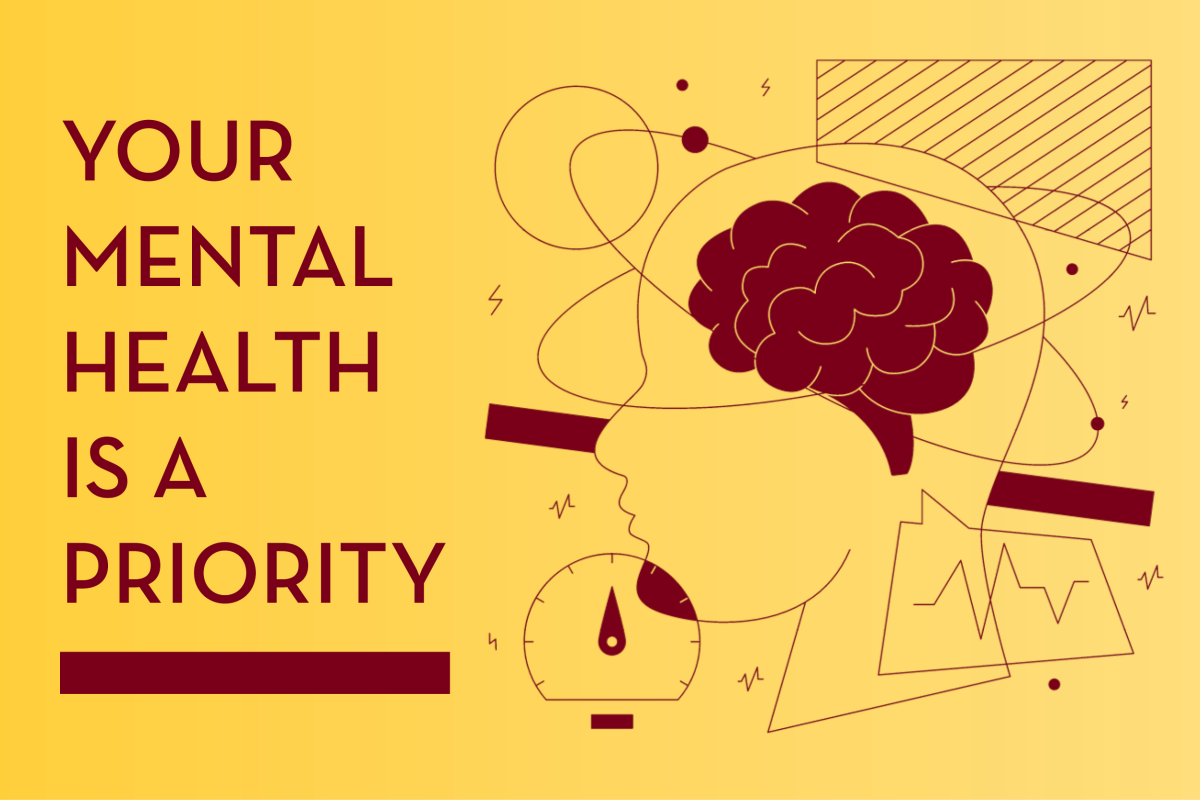Student mental health advocacy: a path to a safer and more inclusive mathematics environment

MINNEAPOLIS / ST. PAUL (09/28/2023) – Boynton Mental Health. Student Counseling Services. Let’s Talk. Effective U. PAWS. Learn to Live. The University of Minnesota offers a variety of mental health services to support students as they navigate the challenges and stressors that often come along with earning a college degree. Among UMN–Twin Cities students, 51.7% report being diagnosed with at least one mental health condition within their lifetime. Undoubtedly, we have a responsibility to provide students with mental health resources – but how do our students begin to navigate the resources themselves? How might someone who’s already feeling overwhelmed take that first step to getting the help they need? Kate Lewis, Senior Academic Advisor for the School of Mathematics and UMN Mental Health Advocate, shares her perspective on how faculty and staff can help.
“When I started at the U of M in Fall 2018, I was astonished during advising meetings by how often students brought up poor mental health impacting their ability to be successful in their classes. I had never experienced anything of this magnitude before,” Kate said. “On the one hand, I was reassured that UMN offered many support resources, but I was overwhelmed by the options and choosing the best option for a particular student and situation. And, I thought, ‘if I was overwhelmed, how do our students feel?’”
Kate completed the Mental Health Advocate (MHA) training program in Fall 2021. At the time, the program was in its earliest stages, and comprised seven 30-45 minute Canvas modules. In early 2023, the University rolled out an updated Mental Health training program to reach a larger audience of UMN faculty and staff. The new program is made up of eight 20-minute modules and features year-round open enrollment through the Training Hub. “During the MHA training, it’s repeatedly emphasized that the goal was to help us be better advocates for our students. There was no expectation that we would take on the role of mental health counselors. That was a huge relief and a good reminder,” Kate said.
Now that Mental Health training is more accessible than ever, there’s opportunity for the School of Mathematics to expand our network of effective advocates. “If more math faculty and staff complete the MHA training, I believe we could build a more supportive environment for students to be heard, understood, and successful,” Kate said. “Part of the MHA training asks us as faculty and staff to look at our courses and current practices and identify areas that cause students needless stress. The idea is not to weaken or make our courses and processes ineffective, but to remove needless barriers to learning.”
More than one-half (50.9%) of UMN–Twin Cities students report that they are unable to manage their stress levels. Of students who report having health and personal issues that impact academic performance, mental health issues rank as one of the issues with greatest impact, affecting 58.7% of these students. “This is the world we live in. If we want to help the next generation be successful, we need to understand the world they must navigate and help them discover coping strategies that are effective for them,” said Kate.
Together, we have the power to create a path to a safer, more supportive, and more inclusive environment at the School of Mathematics. If you’re interested in learning more about free Mental Health training at UMN, get started here.